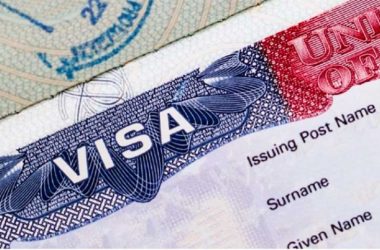
I grew up thinking Citizenship was to be very special and that everyone should forever hold dear to the country we are ‘Sons and Daughters’ of – until the arrival of the Citizenship by Investment Programme (CIPs) in Saint Lucia and the Caribbean.
I’m also still very uncomfortable about Citizenship being treated like a commodity, For Sale to the Highest Bidder – and with a national passport to candle the nearly-free fruitcake.
The concept was quickly embraced by the Eastern Caribbean at the turn of the century as some leaders of cash-strapped island economies felt there was nothing morally wrong about making easy money by selling citizenship to whomever could buy.
My concerns intensified when I realized the purchasers also buy the right to vote in national elections, evidenced by noticeable increases in the numbers of private aircraft at some national airports on Election Day.
By the year 2000, encouraged by the healthy returns posted by Leeward Islands governments operating CIP Units, some Windward Islands leaders started talking about joining in the milking of the new cash cow.
St. Vincent and The Grenadines Prime Minister Dr Ralph Gonsalves indicated his multi-island state wouldn’t join – and I knew I was not alone (in feeling that citizenship shouldn’t be sold).
A definition of ‘citizen’ in my Little Oxford Dictionary says: ‘Inhabitant of a city; native or inhabitant of a State…’
That sober reminder came before Saint Lucia established its CIP Unit in 2015: that we who were born in Castries from 1967 were Citizens of the City of Castries’ and other Saint Lucians became Citizens of the State at Independence in 1979.
However, the downgrading of my perception of citizenship by my Oxford’s definition did not reduce my concerns when the island officially joined in December 2015.
I was no longer Press Secretary to the Prime Minister, but I did privately tell then-PM Dr Kenny D. Anthony of my personal reservations, which he understood, as a friend.
But as a Minister for Finance of a cash-strapped nation reeling from the loss of its traditional banana export market, his administration was persuaded it would not be forgiven by voters for appearing to have engaged in the proverbial act of cutting Helen’s nose to spite her face.
Dominica, Saint Lucia and Grenada eventually launched their respective programmes, but the SLP lost the 2016 General Elections, leaving the United Workers Party (UWP) administration to implement the programme for the next five years.
As with everything else, the CIP was subject to the usual vagaries of regime change and the UWP administration led by then PM Allen Chastanet modified the programme to its own image and likeness, in many cases accused of disregarding requirements for annual parliamentary disclosures of incomes earned from sale of citizenship at home and abroad.
I have followed the programme’s operations here under UWP and SLP administrations in the past (nearly) nine years and the latter has definitely done a better job and earned more dollars for the Treasury that is now changing the lives of Saint Lucians.
In Fiscal Year 2022-2023 under the current Philip J. Pierre administration, the CIP has registered 85% growth, with Real Estate claiming 70% of applications and recording a 222% increase over the previous year.
The Unit received 751 real estate applications in that year — more than double the amount received in all previous years combined – contributing 77% of the total contributions, with 16% from the National Economic Fund (NEF) and 7% from bonds.
Some 1,076 applications were received, of which 544 were approved – 255% higher than the previous year (2021-2022), with the number of rejections reduced from nine to eight.
The number of files on record increased by 343% and new citizenships increased by 88%.
Chinese, Nigerians and Americans dominate the number of applicants and the unit’s total income grew by 11% year-on-year, all derived from various associated fees.
Expenses increased by 47% in FY 2021-2022 and by 43% in 2022-2023, but marketing and promotional expenses decreased by 77%.
Commissions to agents and promoters fell by 4%, but US $2.7 million was paid to marketing agents and for ‘settlement payments’ – a 948% increase on the previous year.
The net result for FY 2022-2023 remains positive with the Unit posting a balance of US $8.4 million (EC $22.8 million), even though still almost 20% lower than the FY 2021-2022 balance that remains ‘a record year for net results…’
Impressive figures, I’ll admit, but I still have a problem trying to figure out why anyone would want a second citizenship and passport.
My other problem is that one purchase allows an entire family to qualify for equal citizenship rights because of their ‘investment’ (the cost price).
Interestingly, it’s not only Caribbean nations in the business of selling citizenship, which remains a very lucrative top-dollar business that the USA, UK and Canada, where successive governments go heads-over-heels to see which can better attract Russian and Chinese millionaires to purchase passports and move their money out of Beijing and Moscow.
Following the break-up of the Soviet Union in the 1990s, the UK and Europe overwhelmingly welcomed fleeing capital with open arms and Russian oligarchs purchased high-priced properties and bought football teams across the continent – only to be hounded after the UK and USA led sanctions against Russia over Ukraine.
The cost of buying citizenship in major Western nations is astronomical and risky vis-à-vis what it takes shady characters to buy Caribbean passports, where citizenship costs as little as US $100,000.
CIP units naturally point to the ‘investment’ and ‘revenue’ aspects, but the system also has to prepare to trace shady characters seeking Caribbean passports to help evade or escape restrictions on their original passports due to criminal activity elsewhere.
In some cases, applicants with nefarious intent change their original names to cover up past misdeeds.
Saint Lucia recently revoked the purchased citizenship of a Chinese national arrested for criminal activity in Singapore who’d changed his name ahead of his application for Saint Lucian citizenship.
It’s not for nothing, therefore, that there’s always a big hue and cry over Due Diligence by CIP units everywhere, as every applicant for a new citizenship also has to be treated as a likely suspect, until cleared by processors and processes.
Interestingly, what most Caribbean citizens know and understand about the CIP depends on who they believe – opposition parties that oppose for opposing sake, or governments bent on ensuring more benefits from the sale of passports go towards projects that will benefit citizens.
But at the end of the day the taste of the pudding is in the eating and Saint Lucians will, by election time in 2026, be able to clearly tell which party, in office, brought more CIP benefits to more ‘born-Saint Lucian’ citizens.
All that said, I still hold that Citizenship should not be for sale, but will also always respect the duty and responsibility of every government to decide and choose to undertake actions they consider in the best national interests.
Well-heeled purchasers of Caribbean citizenship have often demonstrated their ability to make their dollars work even better by paying astronomical legal fees to ensure they benefit from every legal right of ‘fellow’ locals, including challenging state laws intended to limit expansion into areas hitherto preserved or protected by law.
I also have a serious problem with the way Citizenship is being treated by the millions who flee their countries in the developing world to seek ‘better opportunities abroad’ – at the expense of other nations’ taxpaying citizens.
But that’s for the next article in this series.













